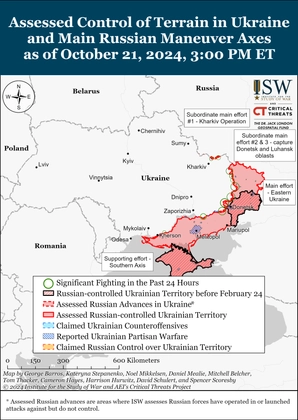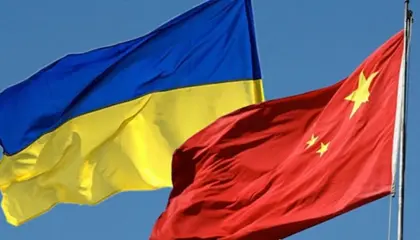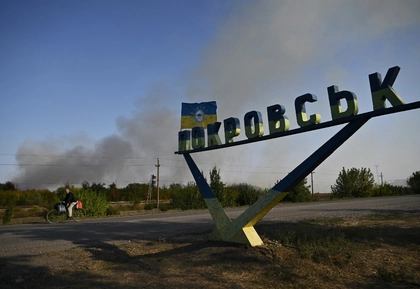China’s peace plan does not identify Russia as the aggressor. Indeed, it uses the aggressor’s preferred terminology by calling the war a “Ukraine crisis.”
Yet despite the questionable veracity of its good will, China’s peace points deserve attention. The Ukrainian and Chinese leaders are scheduling a meeting, most likely to discuss avenues to ending the genocidal war Russia is waging against Ukraine. Zelensky himself announced this in response to the publication of the so-called Chinese “Peace Plan.”
JOIN US ON TELEGRAM
Follow our coverage of the war on the @Kyivpost_official.
The President of Ukraine also has a version of a “Peace Plan.” It was presented to the G20 in November, 2022 and then to the G7 in December. On Feb. 23, 2023 the UN sweepingly passed the “Resolution on the Principles of the Charter of the United Nations underlying a comprehensive, just and lasting peace in Ukraine.” It calls for the ending of the war in Ukraine and demands Russia’s immediate withdrawal from the country.
In varying degrees, all three documents call for peace through the cessation of hostilities, resuming peace talks and the withdrawal of the Russian Federation’s military from the territory of Ukraine. China’s points were dismissed amid outright refusals to consider; most vociferously by Biden. Russia dismisses Ukraine’s plan in its entirety because Ukraine, justly, does not entertain Moscow’s belligerent usurpation of Ukraine’s sovereignty. The UN’s resolution is well phrased but basically impotent; a result of its continued refusal to implement the General Assembly Resolution that would allow for the circumvention of Russia’s powerful Security Council membership. These painful facts notwithstanding, the three documents do require learned attention.

ISW Russian Offensive Campaign Assessment, October, 22, 2024
Not all 12 points presented by China coincide with Ukraine’s 10 points, nor with the 11 points of the UNGA Resolution. For instance, China, in line with its own status of prime global polluter, does not mention environmental security. But, unlike the others, it does mention the cessation of unilateral sanctions and the promotion of post conflict reconstruction. Ukraine’s points skip the economic and reconstruction topic all together. However, they can be found within the Kyiv Security Compact penned by Andriy Yermak and Anders Fogh Rasmussen, respectively President Zelensky’s chief of staff and former General Secretary of NATO.
Apart from these differences, the three documents do share important commonalities that serve Ukraine as well as global interests. Should their peace points be properly prioritized, they could lead to the creation of a foundation for future peace plans and not only for the war ravaging Ukraine.
See the comparative chart of the three peace documents for Ukraine here.
From an international security relations perspective, the commonalities of Ukraine and China’s peace points and the General Assembly Resolution can be broken down into the following seven key categories:
1) State sovereignty
2) International law and justice
3) Nuclear security
4) Food security
5) Human security
6) Economic security
7) Energy security
8) Environmental security
In hybrid war, each of these categories is a chessboard. Together, they form a multidimensional chessboard upon which war is being conducted. While all seven categories are of utmost importance, one is strategically pivotal to the creation of a foundation for effective communications that will lead to peace talks aimed at a comprehensive, just and lasting peace. Namely, state sovereignty.
Step one: define sovereignty and territorial integrity
Cultural perceptions of sovereignty differ among states. China’s interpretation of sovereignty, in light of its perceived interests in India, Russia and Taiwan, also begs the question: what does “sovereignty” mean as presented within its Ukraine peace points? Ukraine’s allies have already displayed a certain disregard towards sovereignty in the Black Sea Region, leading to deleterious effects in Crimea, Abkhazia, South Ossetia, Transdniestria, and even Nagorno-Karabakh.
Before we move on with any serious discussions about a peace plan, all parties must agree upon the exact meaning of state sovereignty. With Ukraine’s aggressor denying the very existence of the Ukrainian nation, and captured nations within the Russian Federation wanting to break free from the Kremlin’s yoke, sovereignty must first be defined in a way that leaves no room for interpretation. This is no easy task.
With the wealth and power of top corporations far outweighing that of most UN members, the role of (state-owned) corporations must be revisited within the prism of defining state sovereignty. With the growing function of national-security related sanctions, public private partner partnerships and the design of social media algorithms that consciously disrupt international relations to make a profit, rights and obligations within the future global security structure can no longer be ignored. This is particularly true in light of the massive global (corporate) cooperation which will be needed for the reconstruction of Ukraine.
As for Ukraine and its future, a vision and common understanding of what a sovereign Ukraine is must be developed by vetted Ukrainians serving the interest of their nation-state and not corrupt schemes or foreign assets.
State sovereignty and territorial integrity are the keystones of our international order. Unfortunately, both have been rampantly abused by powerful states during the post-World War II period. That abuse and lack of accountability in the international arena are the main reasons Russia believes it will get away with the brutal expansion of its black matter empire through the elimination of the Ukrainian nation. Mustafa Kemal Atatürk once said, “Sovereignty is not given it is taken.” Centuries before him, St. Augustine asked, “In the absence of justice, what is sovereignty but organized robbery?” International justice must prevail.
In December 2022, Zelensky urged the leaders of the G7 nations to support his idea for a global peace summit that would focus on the peace plan “as a whole or some specific points in particular.”
Agreeing on a binding definition of sovereignty is a good place to start. Otherwise, what will all the other countries be talking be about and to what end?
The views expressed in this opinion article are the author’s and not necessarily those of Kyiv Post.
You can also highlight the text and press Ctrl + Enter






